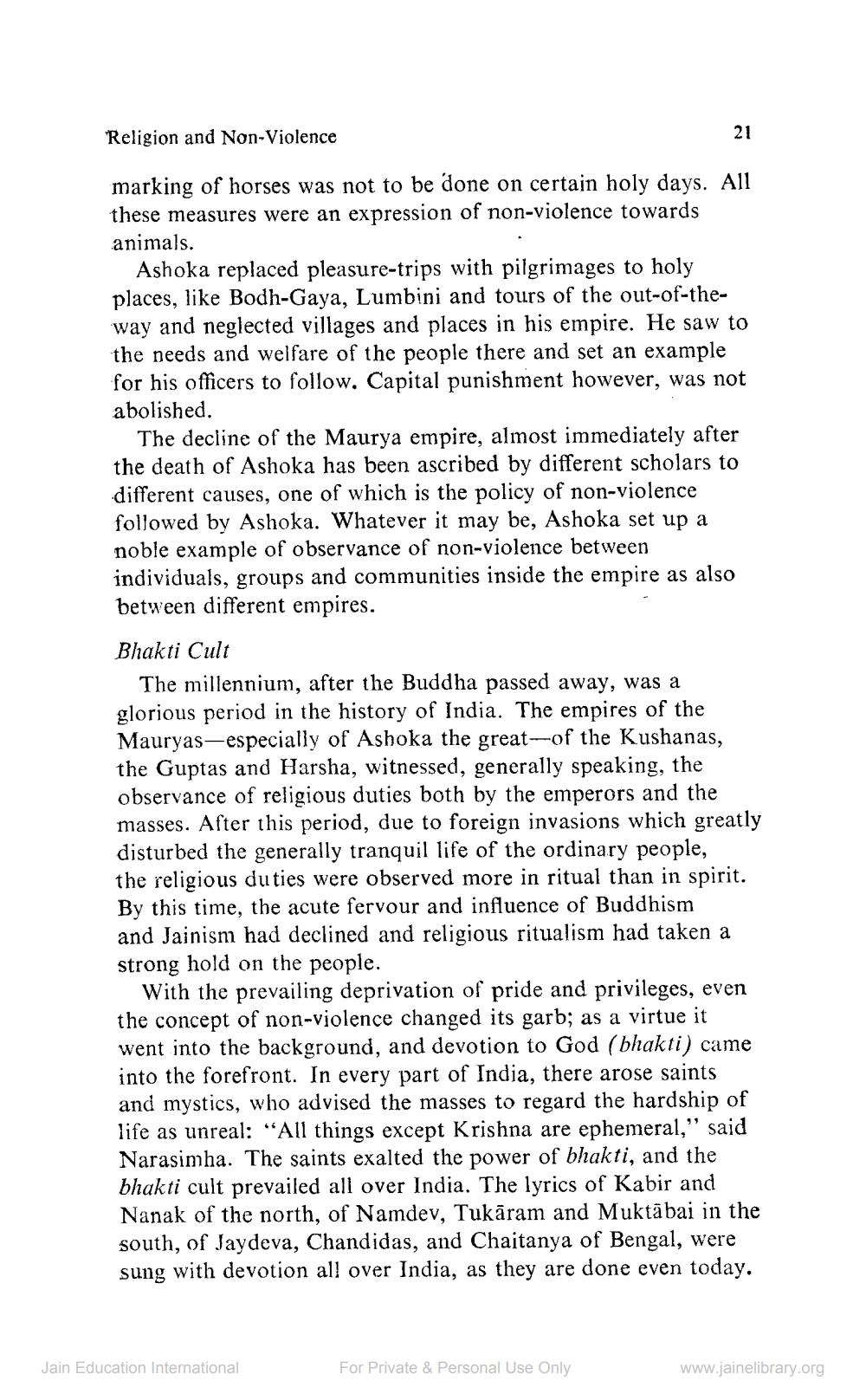________________
Religion and Non-Violence
marking of horses was not to be done on certain holy days. All these measures were an expression of non-violence towards animals.
Ashoka replaced pleasure-trips with pilgrimages to holy places, like Bodh-Gaya, Lumbini and tours of the out-of-theway and neglected villages and places in his empire. He saw to the needs and welfare of the people there and set an example for his officers to follow. Capital punishment however, was not abolished.
The decline of the Maurya empire, almost immediately after the death of Ashoka has been ascribed by different scholars to different causes, one of which is the policy of non-violence followed by Ashoka. Whatever it may be, Ashoka set up a noble example of observance of non-violence between individuals, groups and communities inside the empire as also between different empires. Bhakti Cult
The millennium, after the Buddha passed away, was a glorious period in the history of India. The empires of the Mauryas-especially of Ashoka the great-of the Kushanas, the Guptas and Harsha, witnessed, generally speaking, the observance of religious duties both by the emperors and the masses. After this period, due to foreign invasions which greatly disturbed the generally tranquil life of the ordinary people, the religious duties were observed more in ritual than in spirit. By this time, the acute fervour and influence of Buddhism and Jainism had declined and religious ritualism had taken a strong hold on the people.
With the prevailing deprivation of pride and privileges, even the concept of non-violence changed its garb; as a virtue it went into the background, and devotion to God (bhakti) came into the forefront. In every part of India, there arose saints and mystics, who advised the masses to regard the hardship of life as unreal: “All things except Krishna are ephemeral," said Narasimha. The saints exalted the power of bhakti, and the bhakti cult prevailed all over India. The lyrics of Kabir and Nanak of the north, of Namdev, Tukāram and Muktābai in the south, of Jaydeva, Chandidas, and Chaitanya of Bengal, were sung with devotion all over India, as they are done even today.
Jain Education International
For Private & Personal Use Only
www.jainelibrary.org




